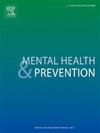A scoping review of interventions designed to optimize perinatal mental health and emotional wellbeing
IF 2.4
Q2 Medicine
引用次数: 0
Abstract
Objective
Childbearing is a critical period within a woman’s life where she is at higher risk of experiencing challenges to her mental health. The aim of this scoping review was to identify and examine interventions offered to pregnant women and/or mothers raising children under 12 months, to prevent illness, promote, or optimize mental health and/or emotional wellbeing.
Methods
Peer reviewed research published between 2019–2024 was sought to provide the most contemporary evidence base within the last five years. A search strategy of five databases revealed six papers focused on optimizing mental health and emotional wellbeing.
Results
Interventions were based in European and Asian countries and of the final six, four studies explored the impact of self-help digital health interventions. Engagement in mental health promoting interventions varied and was impacted by competing demands on time as a new mother and levels of digital literacy.
Conclusion
The findings of this review demonstrates that there is scope to consider the use of mental health promoting interventions in the perinatal period to optimize maternal mental health and emotional wellbeing. However, much more research is needed. Recommendations for future research and practice include developing a better understanding of design and delivery of interventions to promote perinatal mental health. Implementation in the future may benefit from accessing the untapped potential of the midwifery workforce.
旨在优化围产期心理健康和情绪健康的干预措施的范围审查
目的:育龄期是妇女一生中面临心理健康挑战风险较高的关键时期。这项范围审查的目的是确定和检查为孕妇和/或抚养12个月以下儿童的母亲提供的干预措施,以预防疾病,促进或优化精神健康和/或情绪健康。方法speer回顾了2019-2024年间发表的研究,旨在提供过去五年最现代的证据基础。对五个数据库的搜索策略显示了六篇专注于优化心理健康和情感健康的论文。干预措施基于欧洲和亚洲国家,在最后的六项研究中,有四项研究探讨了自助数字健康干预措施的影响。促进心理健康干预措施的参与各不相同,并受到新妈妈对时间的竞争需求和数字素养水平的影响。结论在围产期采用心理健康促进干预措施优化孕产妇心理健康和情绪健康是可行的。然而,还需要更多的研究。对未来研究和实践的建议包括更好地了解促进围产期心理健康的干预措施的设计和实施。未来的实施可能受益于利用助产人员尚未开发的潜力。
本文章由计算机程序翻译,如有差异,请以英文原文为准。
求助全文
约1分钟内获得全文
求助全文
来源期刊

Mental Health and Prevention
Medicine-Psychiatry and Mental Health
CiteScore
2.10
自引率
0.00%
发文量
22
审稿时长
24 days
 求助内容:
求助内容: 应助结果提醒方式:
应助结果提醒方式:


